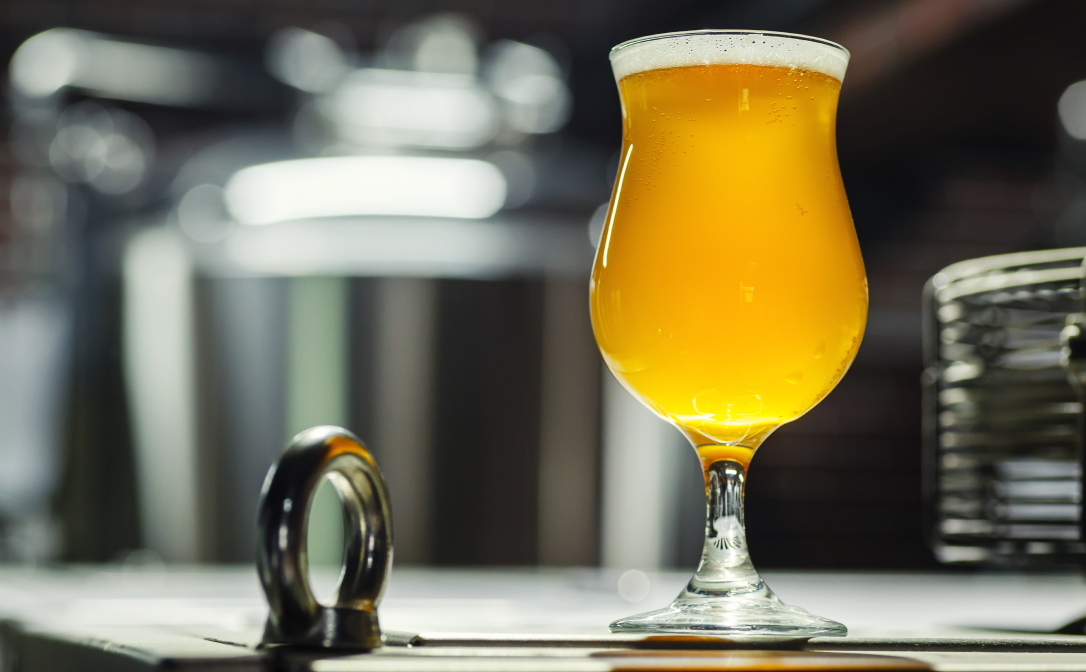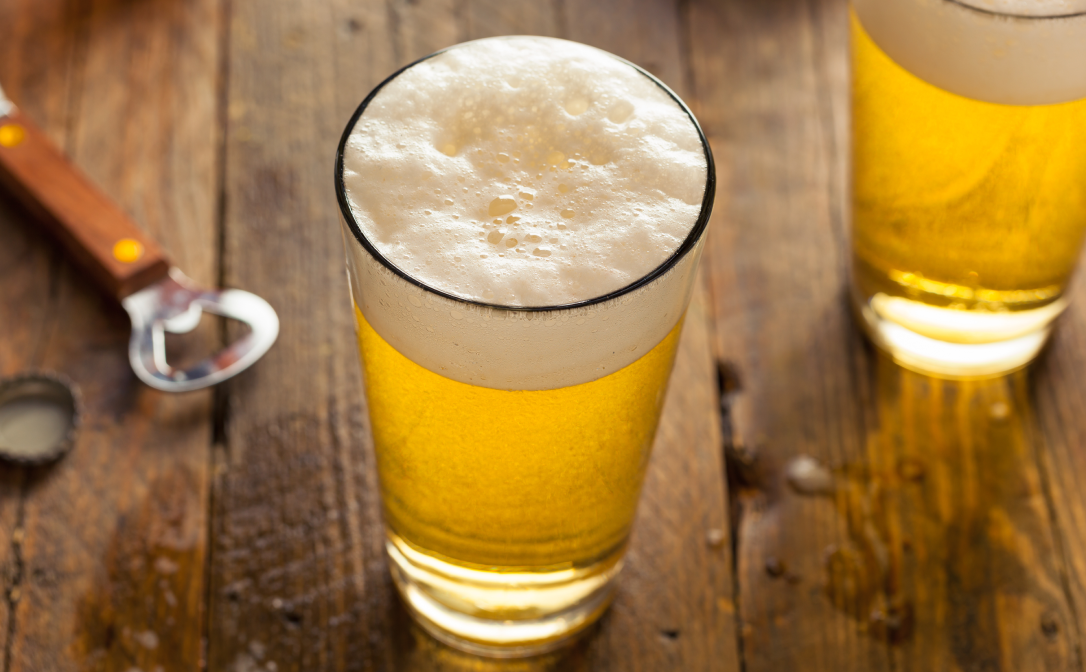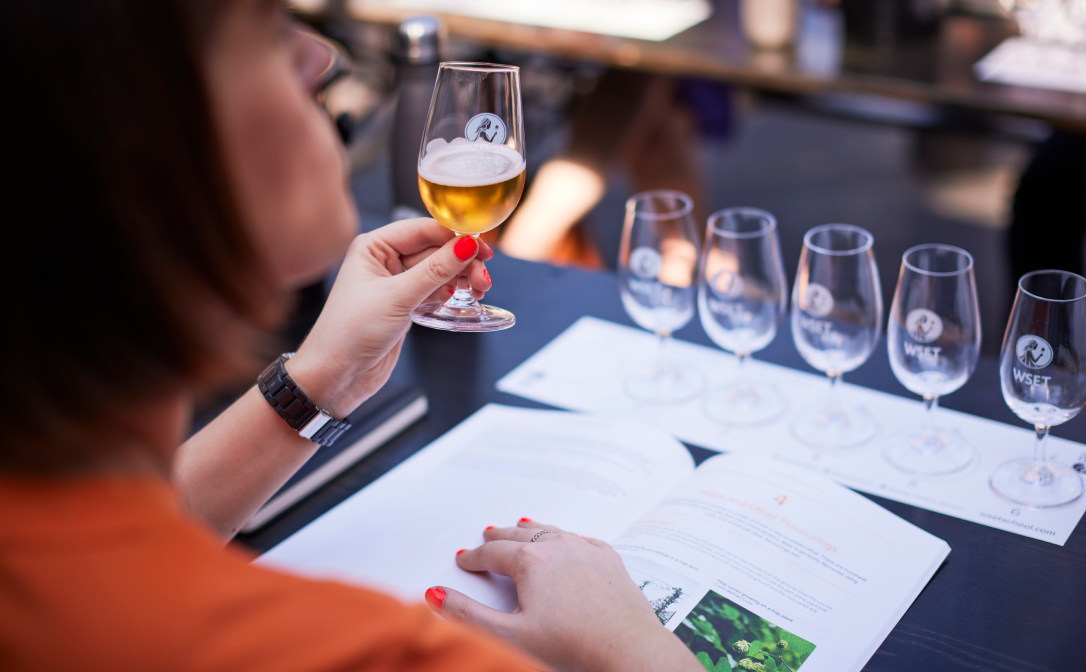Delving into the world of beer is not just about selecting a top-notch brew. The type of glassware you use can have a significant impact on the aroma, flavour, and overall enjoyment of your beer. We're delving into the wide array of beer glasses to find out how they can enhance various types of beer. We'll also explore beer glasses’ influence on the drinking experience, and offer advice on glass care. So, if you're keen to find out which beer glass to use for which kind of beer, keep reading!
The significance of selecting the best beer glass type
The choice of beer glass is often underestimated, but it can considerably enhance your beer-drinking experience. The beer glass design and shape can, in fact, impact the aroma, flavour, and presentation of your beer. Each beer style possesses unique traits that can be heightened or subdued by the type of glassware you use. The appropriate glass can concentrate the aroma, sustain the right head retention, and convey beer to your taste buds most effectively.
Let's examine some common types of beer glasses:
- Pint glass: This all-purpose cylindrical glass is typically used for ales, lagers, and stouts.
- Pilsner glass: Tall and slim, this glass accentuates the colour and fizz of light beers, especially pilsners.
- Snifter glass: Ideal for savouring aromatic beers like IPAs, stouts, and barleywines, this glass features a short stem and wide bowl that allows for swirling and capturing complex aromas.
Beyond these standard beer glasses, there are also unique options that can further enhance your drinking experience. From tulip glasses that intensify the aromas of Belgian ales to wheat beer glasses that display the refreshing look of wheat beers, the world of beer glasses is diverse and exciting. So, when you reach for your next pint, consider which beer glass to use for which kind of beer, and why, to amplify the flavours and aromas.

A tulip beer glass.
Matching beer glasses with beer styles
Pairing the right glass with your beer style can significantly elevate your overall enjoyment. Different beer styles have unique characteristics, and selecting the right glass can enhance these features. Beer styles vary widely in terms of ingredients, brewing techniques, and flavour profiles, which influence the type of glass that best accentuates each beer's qualities.
For instance, a light lager with delicate flavours and aromas is usually served in a tall, narrow glass like a pilsner or flute. This shape helps maintain carbonation and accentuates the beer's crispness. Conversely, robust beers like stouts and porters benefit from glasses with wider mouths and larger bowls, such as a tulip or snifter. These glasses allow the aromas to concentrate.
Here are some examples:
- India Pale Ale (IPA): Best savoured in a tapered glass like a nonic or shaker. This design helps concentrate hop aromas while accommodating a generous head.
- Wheat beer: A tall, vase-shaped glass like a weizen or pilsner is perfect for highlighting the refreshing citrus and banana notes of wheat beers.
- Belgian ale: tulip or goblet glasses are ideal for Belgian ales, as they capture complex aromas and showcase the beer's effervescence.
By understanding the science of sensory perception, you can enhance your beer-drinking experience and fully appreciate the nuances of each beer style.

A shaker pint glass.
How a beer glass influences the drinking experience
The shape of the glass directly influences the beer's flavour and aroma, while the size impacts how much you savour each sip. There is also a psychological effect associated with different beer glass types.
The shape of the glass can enhance or diminish the qualities of different beer styles. For example, a tulip-shaped glass with a narrow top concentrates the aroma, allowing the complex scents of a hoppy IPA to be fully appreciated. Conversely, a wide-mouthed glass like a pint glass can enhance the malty sweetness of a stout.
The size of the glass affects the pace at which you consume the beer, impacting your overall experience. Smaller glasses encourage slower drinking and savouring the flavours, while larger glasses are better for socialising and casual drinking.
The presentation of a beer in a specific glass can influence your perception of its quality and value. The right glass can make you feel more connected to the beer and enhance the drinking experience.
Frequently asked questions about beer glasses
There are often misconceptions about beer glasses and their role in enhancing the beer-drinking experience. Some may believe that any glass will do the job, while others think that specific beer glasses are just a marketing gimmick. However, the truth is that the right beer glass can greatly enhance the aroma, flavour, and overall enjoyment of your beer.
A common question people ask is, 'Which beer glass should I use for which kind of beer, and why?' The answer depends on the characteristics of the beer and the intended flavour profile. For instance, a pint glass is suitable for ales and lagers, while a tulip glass is ideal for Belgian ales and IPAs.
Beer glasses can sometimes seem complex, especially when you encounter terms like nucleation points, head retention, and nucleated glasses. Nucleation points are etchings or laser-etched markings at the bottom of some beer glasses, which help release carbonation and maintain a foamy head. Nucleated glasses are designed to enhance carbonation and create a steady stream of bubbles, resulting in a more enjoyable beer-drinking experience.
Our beer courses cover everything from the brewing process to beer styles. To become more beer confident, why not sign up for our Level 1 or Level 2 Award in Beer?
Why does WSET use ISO glasses in their beer courses?
Whether we are hosting a beer, wine, sake, or spirits course, we use ISO glasses in the classroom.
There are a number of reasons why the ISO (International Standards Organisation) are popular with drinks professionals and educators alike:
- The bowl of the glass is large enough to allow swirling.
- The narrow top concentrates the aromas.
- The stems are reinforced.
- Using ISO glasses in all WSET classrooms also provides a standardised experience for our students all over the world.

Using the ISO glasses in a WSET classroom.
Caring for your beer glasses
Proper cleaning and storage of beer glasses is vital to maintain their quality and ensure the best tasting experience. Here are some tips:
- Cleaning: Hand wash your beer glasses using warm water and a mild detergent. Rinse thoroughly to remove any soap or detergent.
- Storage: Store your beer glasses in a clean, dry environment to prevent dust, dirt, or other contaminants from settling on them.
Common mistakes to avoid:
- Avoid stacking: This can lead to chipping or cracking.
- Avoid extreme temperatures: Rapid temperature changes can cause glass to crack.
By following these simple care tips, you can ensure that your beer glasses remain in excellent condition and continue to enhance your beer-drinking experience.
To learn even more about beer glasses, catch up on our How to choose the right beer glass webinar.


